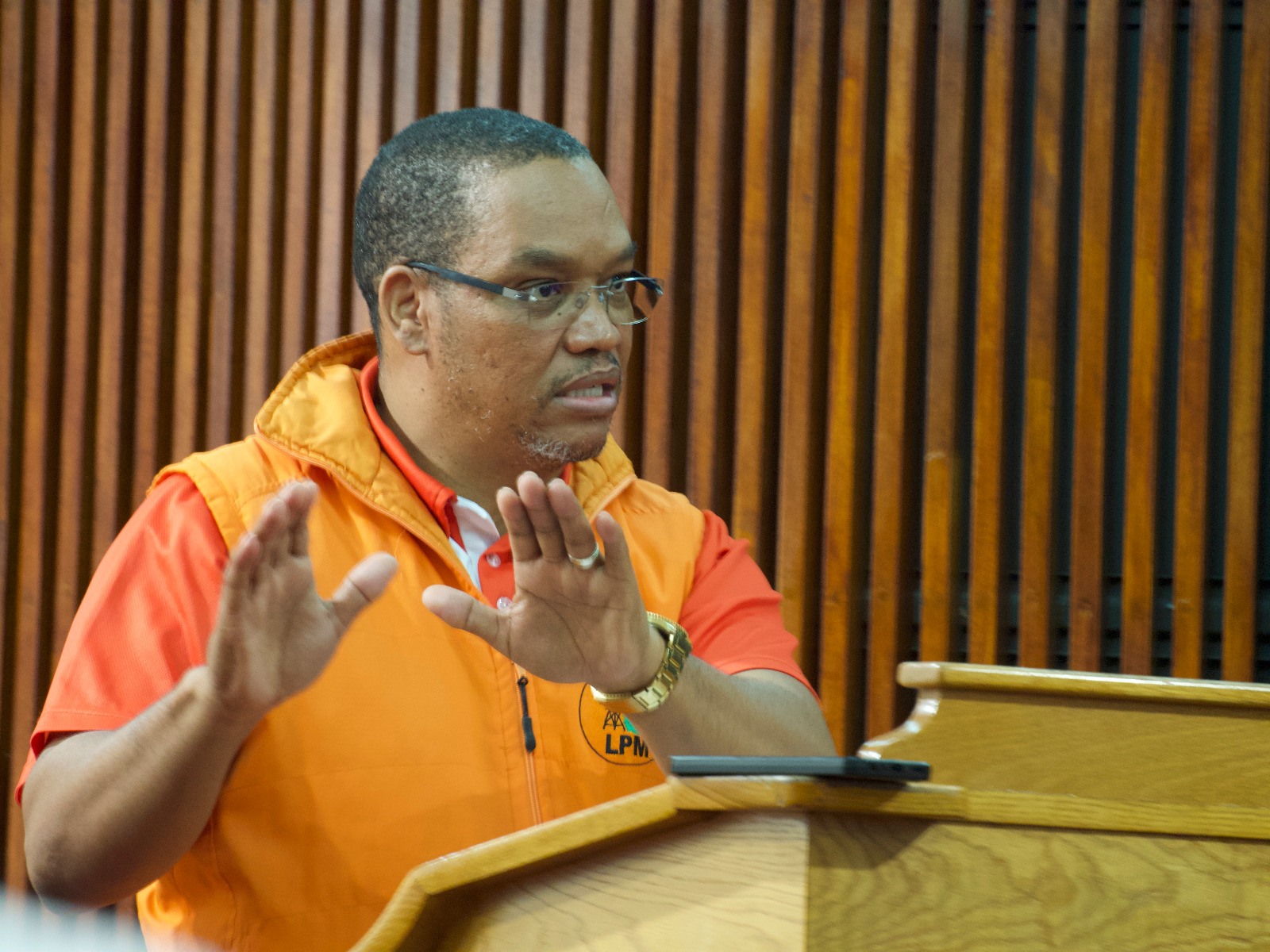Namibia’s population is so small that it arguably requires far fewer connections than outlined in the six degrees of separation theory which posits that any person can be connected to any other person through no more than five acquaintances.
Public enterprises minister Iipumbu Shiimi was thus spot on when stating: “In a small country like Namibia there is always the possibility for potential conflicts of interest, and I want to underline the word potential. The key is how that potential conflict is managed.”
Shiimi was responding to The Namibian’s reporting on conflict of interest issues raised by the appointment of banker and financial expert Lionel Mathews as interim managing director of controversy-ridden state oil company Namcor.
Before the appointment, Mathews was roped into a firm called Fullbright Investments which was chosen as a preferred bidder to partner with Namcor in setting up fuel storage infrastructure around the country valued at about N$1 billion.
We could not agree with Shiimi more when he says “the key is how that potential conflict is managed”. Therein lies the crunch.
Instead of acknowledging and explaining how the conflict of interest between Mathews’ private dealings and Namcor will be handled, though, Shiimi and several other parties driving his appointment seem to want to divert attention elsewhere and wish away the issue.
Shiimi, in fact, went further. He criticised journalists for their reporting on the issue.
He was quoted as urging journalists to “take the high moral ground to defend brave and patriotic Namibians who stick out their necks and put their lives, those of their families and their careers at risk to create a better Namibia for future generations”.
Shiimi suggested that by pursuing the conflict of interest issue the media was captured by “dark forces that are driven by self-interest”.
News reports have not questioned the experience, expertise, suitability and integrity of Mathews to run Namcor.
However, a conflict of interest is not merely a red herring chased by the media at the behest of so-called “dark forces”.
Shiimi and others who downplay the issue seem to forget the importance of the need for constant vigilance when it comes to conflicts of interest. It is crucial to transparent and fair governance.
Failure to regulate and manage conflicts of interest is what largely led to a select number of families, their friends and political connections getting fishing and mining licences, as well as benefiting from other public resources that have enriched them while the majority of our country’s small population struggles to make ends meet.
It is no secret Mathews has worked closely with the Fullbright team. He now stands to gain more knowledge about Namcor’s operations.
Will he simply recuse himself while at Namcor and after his stint of six months go back to helping Fullbright make the most of its agreement with the state company?
Without such issues being addressed, the public is left to draw conclusions that may unfortunately taint Mathews whose integrity Shiimi is vouching for.
It is in everybody’s best interest that the potential conflict of interest is handled transparently.
Exactly because Namibia is a country with a small population of close-knit connections, measures to address conflicts of interest must be tightened.
At state-owned institutions such as Namcor that are embroiled in power struggles, it becomes even more crucial that key governance matters like conflicts of interest not be brushed aside simply because Namibia has a small population. Namibians are watching.
Stay informed with The Namibian – your source for credible journalism. Get in-depth reporting and opinions for
only N$85 a month. Invest in journalism, invest in democracy –
Subscribe Now!










